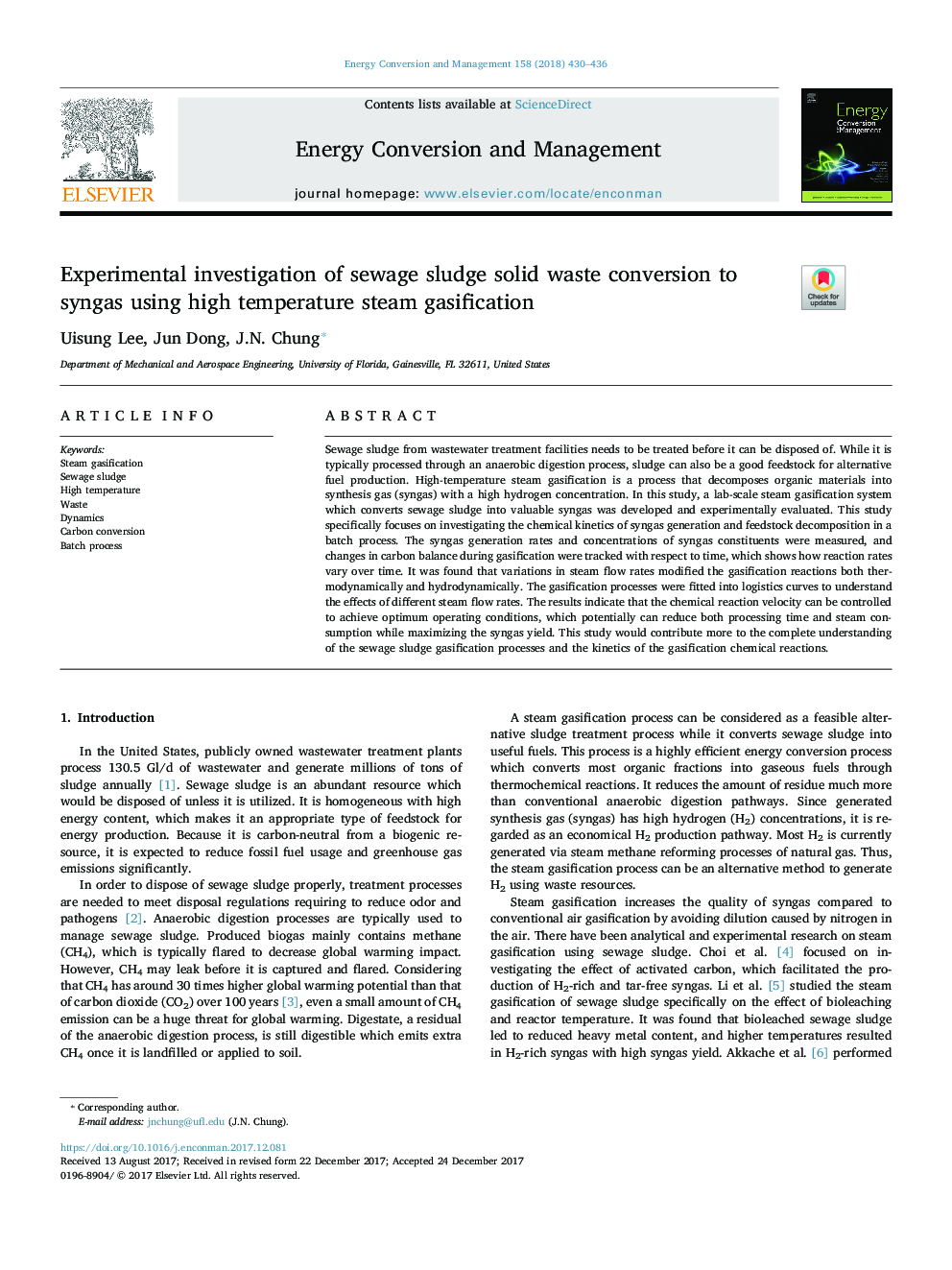| Article ID | Journal | Published Year | Pages | File Type |
|---|---|---|---|---|
| 7159161 | Energy Conversion and Management | 2018 | 7 Pages |
Abstract
Sewage sludge from wastewater treatment facilities needs to be treated before it can be disposed of. While it is typically processed through an anaerobic digestion process, sludge can also be a good feedstock for alternative fuel production. High-temperature steam gasification is a process that decomposes organic materials into synthesis gas (syngas) with a high hydrogen concentration. In this study, a lab-scale steam gasification system which converts sewage sludge into valuable syngas was developed and experimentally evaluated. This study specifically focuses on investigating the chemical kinetics of syngas generation and feedstock decomposition in a batch process. The syngas generation rates and concentrations of syngas constituents were measured, and changes in carbon balance during gasification were tracked with respect to time, which shows how reaction rates vary over time. It was found that variations in steam flow rates modified the gasification reactions both thermodynamically and hydrodynamically. The gasification processes were fitted into logistics curves to understand the effects of different steam flow rates. The results indicate that the chemical reaction velocity can be controlled to achieve optimum operating conditions, which potentially can reduce both processing time and steam consumption while maximizing the syngas yield. This study would contribute more to the complete understanding of the sewage sludge gasification processes and the kinetics of the gasification chemical reactions.
Related Topics
Physical Sciences and Engineering
Energy
Energy (General)
Authors
Uisung Lee, Jun Dong, J.N. Chung,
